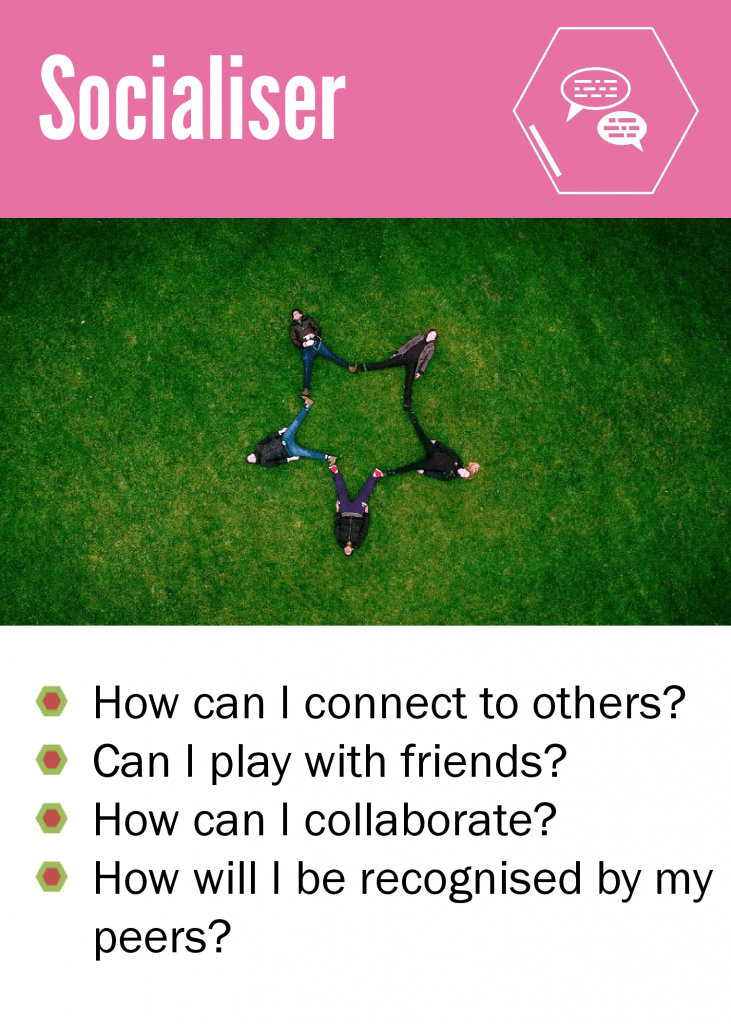One of the cool things about working in gamification is having access to some very cool and very intelligent people! One of those is a chap by the name of Carl Eacott. We met on Twitter some time ago and then months later discovered we lived on the same street. Since then, I have ended up working in the same company and to save the planet, we car share. The awesome thing about this is I get 2 hours a day to speak to a genuine work psychologist. It has been hugely interesting and has led to many “Ah-Hah!” moments. One of those was the idea of using my User Types HEXAD as a series of lenses rather than specific set in stone types.
Lenses
The idea of lenses is nothing new. The basic idea is to put yourself in a different position to view a problem from a different perspective. Jesse Schell created an amazing deck of lenses to go with his seminal game design bible “The Art of Game Design“. Each one challenges you to ask certain questions about your game to try and get a new perspective on it.
What I offer you here is a simple set of six lenses based on my User Types HEXAD. Each one asks three or four questions to help you get into the mind of each type as you design. When I finally release the new version of my Inspiration Deck of cards, these will replace the current type description cards and I may add a few more for fun.
Let me know if you feel any of these ask the wrong questions, or if the questions could be better.
Similar Posts:
- New Solution & Gamification Design Lenses Card Deck
- Gamification User Types HEXAD Validation Study
- Gamification Inspiration Cards

Also published on Medium.








This is great! These lenses will make it much easier for people to understand how to design solutions based on the user types! Well done!
Some specific comments about the questions:
“How will I be recognised?” – there are many types of recognition, not only social recognition; perhaps it’s interesting to clarify that this is about being recognised by others?
“What can I learn?” – In my studies, I’ve gotten the impression that learning is a strong motivation both to Achievers and Free Spirits. Perhaps there’s a difference in the means by which people seek to learn: Achievers probably prefer being given tasks/challenges to complete that lead to learning new things, whereas Free Spirits probably prefer being able to explore new things by themselves. But either way, both are similarly seeking to learn. So, there should be a way to better reflect this in the lenses.
Regards,
Gustavo Tondello
Good comments and integrated now 😀